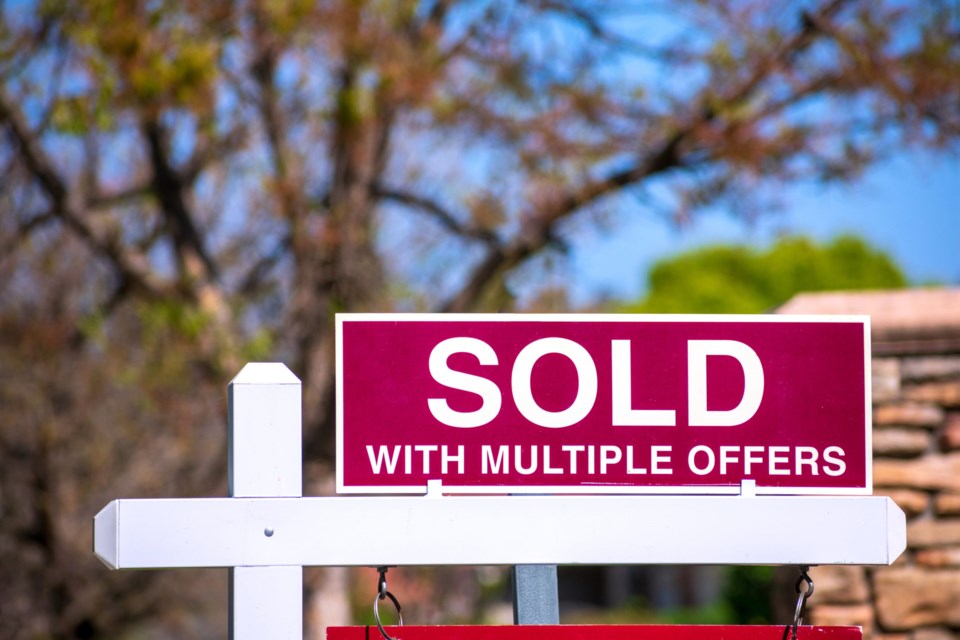New BC Liberal leader Kevin Falcon has moved early to pick a fight with the NDP on what he considers one of the key issues on the minds of voters today: Housing affordability.
Nowhere was that more evident than in the legislature on Thursday, where the Opposition dedicated an entire question period to the housing file and in the process went toe-to-tie with one of the BC NDP’s top ministers.
“After five years of the NDP's failure on this file, housing prices are now at an all-time high,” said Mike Bernier, Falcon’s newly-appointed housing critic. “The NDP has basically just given up on the middle class in the province of British Columbia.”
It wasn’t that long ago that the BC Liberals were forced to tread gingerly around the housing issue. Metro Vancouver voters had repudiated the party’s position on housing in the 2017 election, deeming it unsympathetic toward rising prices, solely focused on foreign buyers – and lacking compared to the BC NDP’s full-throated promise to tackle dirty money, loopholes, and greed many felt were driving the market.
But five years later, the housing affordability crisis is worse than ever.
Average prices have risen in the double digits annually for years. Supply is at its lowest point in memory. Investors are gobbling up properties in bidding wars. Rents are increasing at alarming rates. By any measure you choose to use, housing has grown dramatically less affordable.
Falcon sees an opening there to try and reclaim housing as his own wedge issue. But it will not be an easy path, and he’ll have to thread the needle carefully in the minds of voters.
The first hurdle for him is the double-edged sword of his experience working for a high-end investment and property development company since retiring from politics in 2013.
During the leadership race, Falcon portrayed this as valuable real-world insight into how the housing market works that he could use to improve conditions from the premier’s office.
But his political enemies struck a different tone in the house.
“Rightly we brought in demand-side measures on international money in our housing market, on people who are leaving homes vacant, not renting them out, using them as investments,” Housing Minister David Eby said in reply to Bernier during question period Thursday.
“Now, I understand that the other side of the House disagrees with that. They think people should be able to use homes as investments.
“In fact, they just elected a speculator as leader of their party.”
Casting Falcon as a kind of money-bags speculator will be a powerful retort by the BC NDP. It could easily resonate in the minds of voters, unless Falcon unveils some concrete ideas that financially-pressured Lower Mainlanders can rally behind.
It’s not clear yet whether that’s where Falcon is headed. He’s so far had a pre-occupation on the issue of taxes, saying they only serve to deter investment.
“They've unleashed a blizzard of taxes that have done absolutely nothing around housing affordability,” said Bernier.
“The NDP has said that increased taxes actually would help solve the affordability crisis, but now they've been forced to talk about basic economics: ‘No tax policy is going to put a roof over someone's head.’ That's not me saying it this time. It's actually the Minister of Housing, who has finally agreed that this is an issue.”
Instead, Falcon appears to be focusing mainly on the supply side – reducing red tape, speeding up municipal approvals and getting as many housing projects built as quickly as possible to “flood the zone” with new units and stabilise prices.
It fits with the BC Liberals’ general philosophy that the private sector is best suited to solve problems, and that the government's role is to largely set favourable conditions and then get out of the way.
This may be a viable solution. But voters have already shown in two elections they prefer a government willing to at least try to intervene. Public sentiment is probably not on the side of just letting the private sector run unfettered on housing, given the enormous scope of the problem, and the enormous divide between owners and renters.
The BC public could equally love the idea of a government willing to ramp up the “blizzard of taxes” on wealthy investors, speculators with multiple properties, businesses dabbling in real estate (such as, apparently, ICBC) and people quick-flipping homes to play the housing market like the stock market.
All of those options are currently under consideration by Eby, who is quietly doing a massive bit of consultation behind the scenes on a suite of possible moves.
“I sat on that side while this side of the House, when the BC Liberals were in power, let the housing market get out of control with international money, empty homes,” Eby said during question period.
“Now, I understand this makes the other side uncomfortable, because they were the ones who created this problem that we're fixing.”
Whether Falcon likes it or not, that likely remains the prevailing public sentiment in the minds of most Metro Vancouver residents at the moment. He’s got his work cut out for him to change the minds – and votes – on a key issue before the next election.
Rob Shaw has spent more than 13 years covering BC politics, now reporting for CHEK News and writing for The Orca. He is the co-author of the national best-selling book A Matter of Confidence, and a regular guest on CBC Radio.



